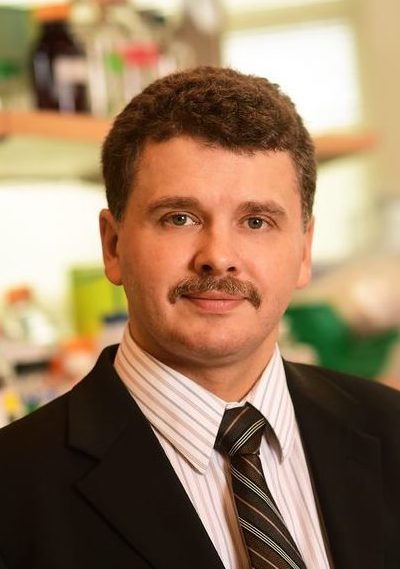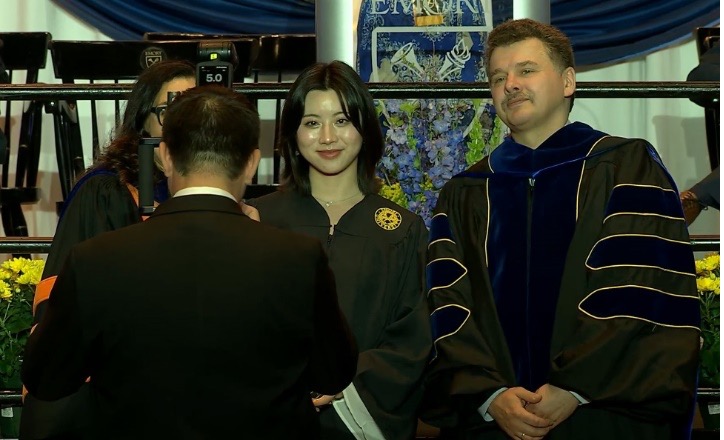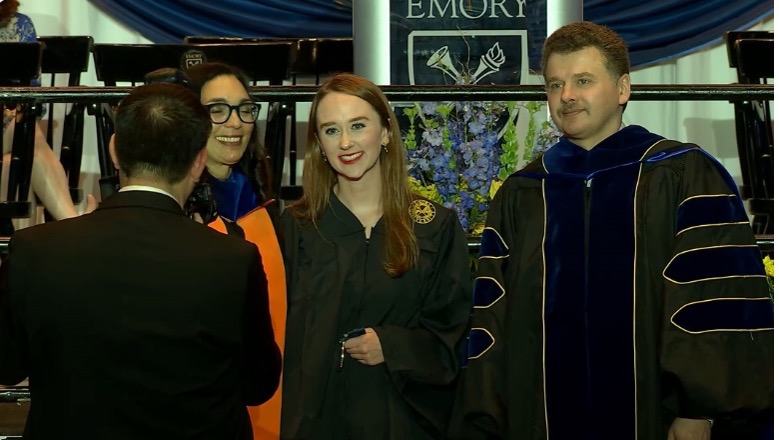Dr. Andrey Ivanov

Andrey Ivanov, PhD, is an Assistant Professor in the Department of Pharmacology and Chemical Biology at Emory University School of Medicine and the Associate Director for Computational Chemical Biology at Emory Chemical Biology Discovery Center. In his research, Dr. Ivanov develops and applies state-of-the-art bioinformatics, structural modeling, and computational systems biology approaches supported by experimental chemical biology to discover and regulate the molecular mechanisms of human diseases.
Dr. Ivanov received his MS degree in Chemistry in 2002 from Moscow State University, Moscow, Russia. He received a Ph.D. in Chemistry, majoring in Organic Chemistry and Computational Chemistry, from the Institute of Physiologically Active Compounds, Chernogolovka, Russia in 2004. Dr. Ivanov continued his training in computational medicinal chemistry as a Visiting Fellow at the NIH NIDDK, where he developed and applied computational models to discover new potent and selective ligands of G Protein-Coupled Receptors, including new antagonists of the human adenosine and P2Y, with the nano-molar potency range and significant subtype selectivity. His contribution to the development of the P2Y receptor antagonist was recognized by the National Institutes of Health Fellows Award for Research Excellence Award, National Institutes of Health, 2008. In 2009, Dr. Ivanov joined the Department of Biochemistry at Emory University. His predictive models of Plasmodium adenosine deaminase (ADA) allowed the identification of specific amino acid residues critical for ADA species selective ligand recognition to facilitate the discovery of new compounds with enhanced selectivity versus the human ADA.
Now, the Andrey Ivanov lab is integrating computational approaches with experimental chemical biology and high-throughput screening (HTS) to identify and regulate therapeutically significant protein-protein interactions (PPIs).
As part of the Informatics Technology for Cancer Research (ITCR) Program of the National Cancer Institute, Dr. Ivanov’s lab focuses its efforts on uncovering new druggable cancer vulnerabilities enabled by mutant-directed PPIs. A high-throughput screening for mutant-enabled neomorph PPIs (neoPPIs) revealed hundreds of neoPPIs for oncogene and tumor suppressor tumor driver genes (Mo, X., et al., Cell, 2022). However, the translation of the emerging neoPPI landscape into actionable drug targets remains highly challenging. To address this challenge, the Ivanov lab developed a new informatics approach, termed AVERON, to determine the most clinically and biologically significant neoPPIs and neoPPI-regulated genes to inform new biological models and clinical strategies in cancer (Chen, H., et al., iScience, 2024).
To enable the exploration of cancer-associated PPI networks for the research community, Dr. Ivanov leads the development of the Emory OncoPPi Portal. The OncoPPi network available through the Portal has revealed multiple new mechanisms of oncogenic signaling, including a new regulatory mechanism for the activation of the master regulator of cell growth MYC by mitogen-activated protein kinase kinase 3 (MKK3). Based on this discovery, Dr. Ivanov initiated research in his lab to define MKK3-MYC interaction as a therapeutic target in proliferative diseases. He discovered that MKK3 promotes MYC transcriptional activity and protein stability independently of MKK3 kinase activity, indicating a novel function for this type of kinases as adaptor proteins. Furthermore, the Ivanov lab has determined that high MKK3 expression and MKK3-mediated MYC activation correlate with decreased survival of African American patients with Triple-Negative Breast Cancer (TNBC) (Yang, X., et al., J. Transl. Med., 2020). Thus, targeting MKK3-MYC PPI with small molecules may provide a new therapeutic approach to decrease racial survival disparity in TNBC. Toward this goal, Andrey Ivanov's lab, supported by the Mary Kay Ash Foundation, has integrated computational and HTS approaches to discover the first MKK3-MYC PPI inhibitors (Yang, X., et al., Bioorg. Med. Chem., 2021).
Dr. Ivanov's research goes beyond cancer. For example, he serves as a co-investigator leading the cheminformatics and bioinformatics effort to support the development of new therapies for Alzheimer’s disease. Alzheimer's disease (AD) is the most common cause of dementia and one of the leading causes of death worldwide. The current failure in AD therapeutic development demands the discovery of new therapeutically actionable mechanisms underlying the disease. To address this unmet medical need Dr. Ivanov initiated the discovery of small molecule inhibitors to target neuroinflammation through the protein-protein interaction between p38 and MK2 kinases. The PPI between mitogen-activated protein kinase p38 and its main substrate MK2 plays a central role in pro-inflammatory signaling. Both proteins are well-defined targets for therapeutic discovery, however, none of the proposed inhibitors have reached approval as a drug due to adverse side effects and limited selectivity against other kinases. To overcome this critical barrier, Dr. Ivanov’s lab is developing a new approach to disrupt the p38/MK2 PPI rather than inhibit the p38 or MK2 kinase activity. Recently, this project was funded by NIH/NIA as a promising novel strategy to control p38/MK2-dependent neuroinflammation in Alzheimer's disease.
Dr. Ivanov has more than 50 peer-reviewed publications, including 4 book chapters. He is a member of the Discovery and Developmental Therapeutics Research Program at Winship Cancer Institute. He is also a member of the Board of Directors of the International Chemical Biology Society (ICBS) and serves as the Chair of the ICBS Communication Committee. Dr. Ivanov serves as the Associate Editor for Frontiers in Genetics, Computational Genomics section, and is a member of the Scientific Expert Review Panel (SERP) of the Chemical Probe Portal. Dr. Ivanov provides his mentorship for students and trainees. He led the organization of the Innaguaral ITCR Trainee Symposium. This year two undergraduate students from the lab, Maylynn Hu and Sophia West have graduated with the Highest Honors!



